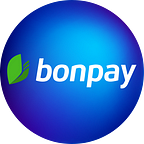Holding tokens, as well as cryptocurrency, is a quite stressful venture. High volatility, rapid changes on the market, fraudulent projects — there are a lot of things to worry about. And one more was added — some tokens are considered as securities and became subject to federal regulations.
In July 2017, SEC (Securities and Exchange Commission) published a report, where main statement was that during investigation DAO Tokens were recognized as securities, and, according to which, some other tokens also can be classified as securities and become a subject to regulation.
Regulation is one of the most pressing questions regarding crypto-related projects at all and tokens in particular. Tokens may fulfil functions of currency, asset, company share, method of payment and many others, so they are quite difficult to define. Ideally, tokens must have separate specific regulations, as they are new class of asset. Maybe, that kind of regulation will be implemented in future, but currently part of them is treated as a security with all following restrictions. The distinctive feature of security is that when you buy it you transform money into capital. The value of the security is that its emitent promises buyer dividends and profit. Securities allow to own an asset without taking possession.
But not all tokens are security ones. Two types of them are recognized — security and utility. Security tokens are designed to be the company’s share, while utility tokens represent access to company’s product or service, i.e. have practical use. Utility tokens are exempted from regulation and security laws.
To determine whether token is a security or utility, SEC performs Howey test, designed in 1946 to recognize whether certain transactions are investment contracts. Projects who sell security tokens during ICO have to register tokens, while participants of unregistered offerings may be responsible for the violation of securities laws.
Issuing security tokens according to the regulations is easier and cheaper for the project than launching Token sale offering utility tokens — it reduces legal risk. But classified as security tokens are regulated, and thus limited on who can invest in them and how they can be traded. As a result, liquidity of such tokens is extremely reduced. Trading is greatly limited for security tokens — they cannot be traded freely. This restriction may destroy the effects of network and prevent the development of platform.
Another type of tokens — utility — have a use case and are not designed as investments, but that doesn’t mean that they don’t bring any profit. They have a certain use case inside the project and don’t represent company’s share. Utility tokens may grow in price, if the demand for service or product increases. So buying such tokens of a project, that solves real problems of users and is constantly being developed and improved, may give great profit in future.
Utility coins have some kind of automatic stabilization system. If the price goes up too much, the demand, that is driven by use case, will decline, and in reaction to that price will also decrease. At the same time if price falls, demand increases — and soon price will stabilize. The main aim is growing, or at least stable, demand, which can be assured by constant development of the token-related project.
The bright example of utility token is BON Token, issued during Bonpay Token Sale. BON is not a security, share, investment or ownership of Bonpay company. BON is an example of utility token, that is designed to work in Bonpay ecosystem and product line. BON Tokens will be implemented into the service ecosystem in the second quarter of this year. The service is growing, so the trading volume of BON Tokens, and consequently the price, will increase. Recently BON Token has received legal opinion with recognition it as utility token, that will facilitate the development of the project.
To sum up, security tokens give the holder an ownership rights (for company’s share, for example), while utility ones have certain function inside the company’s platform. No surprise, that cryptocurrency, that has a decade-history and billions capitalization, becomes the subject of government’s interest. Involvement of regulation is just another proof that crypto is equal partner in financial world and has come here for long. It is just the initial stage of regulation, and more is to be expected, but despite attempts to control crypto sphere, it gives people financial freedom never witnessed before.
If you are reading this article, then most likely you own some crypto. Have you ever wondered how you can actually use it? There are not so many places where Bitcoin is accepted, and even there you may wait for hours until transaction is confirmed. You may also be surprised by unexpectedly enormous transaction fee. But there is a solution.
Bonpay Card. You load it with cryptocurrency, and then use it everywhere usual plastic cards are accepted. Bonpay Card instantly converts cryptocurrency into fiat with no hidden fees. First 20 000 cards will be issued at the beginning of the summer 2018. Pre-order right now and go on a cryptocurrency shopping spree!
